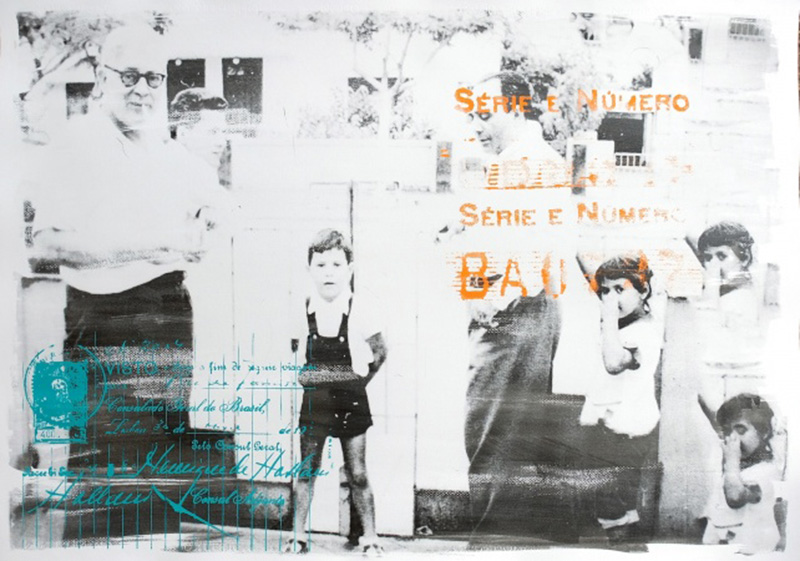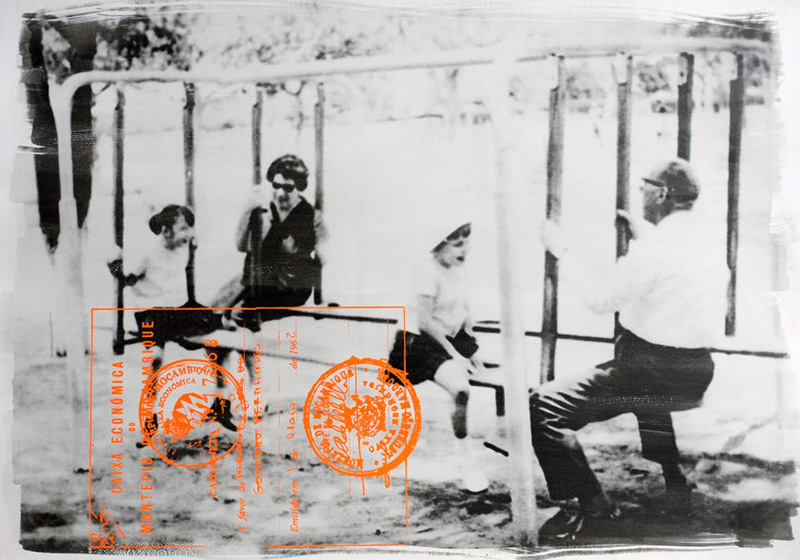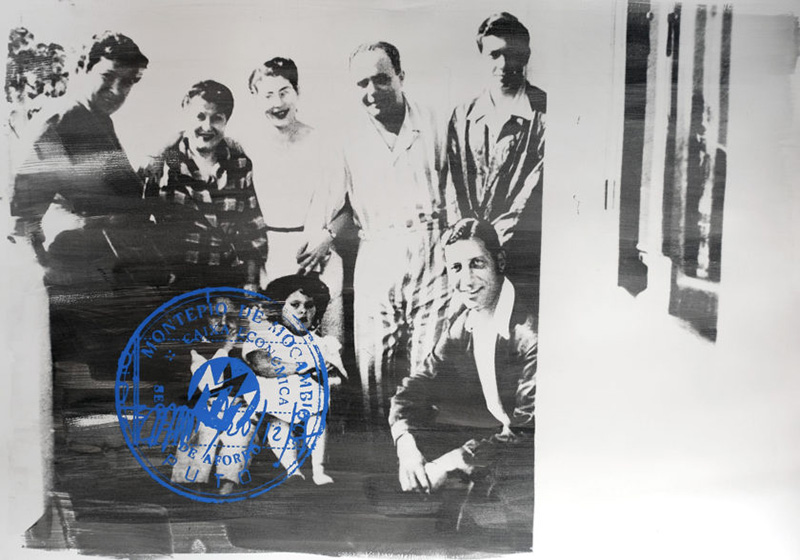ART CITIES:London- Délio Jasse
 In his work, Délio Jasse often interweaves found images with clues from past lives from found photos or family albums, to draw links between photography and memory. He is also known for experimenting with analogue photographic printing processes, including cyanotype, platinum and early printing processes such as ‘Van Dyke Brown’, as well as developing his own printing techniques.
In his work, Délio Jasse often interweaves found images with clues from past lives from found photos or family albums, to draw links between photography and memory. He is also known for experimenting with analogue photographic printing processes, including cyanotype, platinum and early printing processes such as ‘Van Dyke Brown’, as well as developing his own printing techniques.
By Efi Michalarou
Photo: Tiwani Contemporary Archive
In his solo exhibition “The Lost Chapter: Nampula, 1963”, at at Tiwani Contemporary, Délio Jasse presents a new, previously unseen body of work, that continues the artist’s exploration of the photographic archive. The artist was born and raised in Luanda Angola, at the age of 18, he moved to Lisbon. His interest in different printing techniques was first aroused through his work with silk screens, although soon afterwards this led him to photography. His work draws links between generations and cultures, combining found imagery with his own photography to explore memory. At a flea market in Lisbon, Jasse acquired boxes of documents that contained several hundred photographs, many of which captured the life of a Portuguese family living in Nampula, Mozambique in the ‘60s. While the identity of the family remains unknown, Jasse was able, through months of archive work, to piece together fragments of the family’s narrative by cross-referencing the prints against the official paperwork in the boxes and clues relating to the photographic process to shed light on aspects of the family’s identity and their whereabouts. Délio Jasse has transformed the original material into his own pictorial works. The prints are marked with vivid screen-printed stamps, which were lifted from the official documentation attributed to the family. In the ‘50s and ’60s, the thriving colonial economy attracted thousands of new Portuguese immigrants to Mozambique. Several photographs in the exhibition show mundane recreational scenes of everyday life. The family’s leisurely lifestyle highlights the distinct economic privilege they enjoyed and the inherent inequality of the colonial system. Meanwhile, the absence of black Mozambicans, aside from the few instances in which staff or passers-by furtively appear in the frame, suggests that much of the local population was experiencing a different reality. As Jasse reconstructs the family’s archive, wider historical and political narratives overshadow the personal. The “Lost Chapter: Nampula, 1963” raises questions around the role of the researcher (in this case, the artist) in the archival process. A series of large double exposures directly addresses Jasse’s fictionalisation and further explores his role as an interpreter of history. In these works, the artist has created a new, fictive identity for the family members. A hybrid merging of their faces with architectural elements from their compound alludes to the transformative potential of the archive and the transient and imperfect nature of memory.
Info: Tiwani Contemporary, 16 Little Portland Street, London, Duration: 11/11-17/12/16, Days & Hours: Tue-Fri 11:00-18:00, Sat 12:00-17:00, www.tiwani.co.uk




